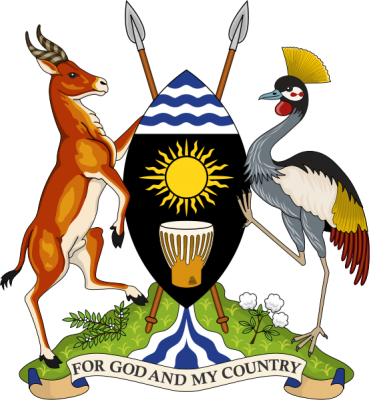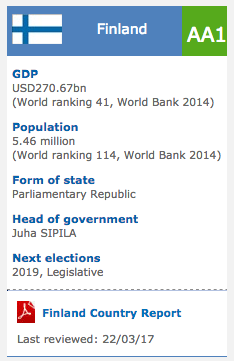Uganda: Uganda Outlook for 2013-17
2013/08/12

The country (Uganda) is situated in Eastern Africa, west of Kenya.
It has borders with Congo (Kinshasa) for 765km, Kenya for 933km, Rwanda for 169km, Sudan for 435km and Tanzania for 396km.
Land in Uganda is mostly plateau with rim of mountains.The climate is tropical; generally rainy with dry seasons (December to February, June to August); semiarid in northeast.
(most widely used of the Niger-Congo languages, preferred for native language publications in the capital and may be taught in school), other Niger-Congo languages, Nilo-Saharan languages, Swahili, Arabic.
Overview
The president, Yoweri Museveni, and his National Resistance Movement (NRM) will continue to dominate the political scene following a resounding victory in the February 2011 elections. There may be some limited outbreaks of civil unrest, but Mr Museveni has total control of the security forces, making wider political instability unlikely. Inflation is estimate to average 6.7% in 2013-15 owing to stable commodity prices and fiscal tightening. We expect it to increase to 15.4% in 2016 on the back of pre-election spending, before easing in 2017. The current-account deficit as a % of GDP is estimate to remain in double digits as import costs continue to increase owing to request for capital imports for infrastructure projects, notably in the energy sector.
Political outlook
Police raided the offices of two newspapers and two radio stations which published parts of a letter calling for an investigation into an alleged plot to assassinate people who discord with an alleged presidential succession plan. The media crackdown reflects the pressure on the government.
The president made some high-level personnel changes in the army and the police, and carried out a cabinet reshuffle, on May 23rd. Aronda Nyakairima was moved from chief of Defence Forces to internal affairs minister.
A leaked copy of the new statement of the UN Security Council's Group of Experts (GoE) alleges that Uganda have continued to support the M23 rebellion in eastern Democratic Republic of Congo (DRC). The government has threatened to withdraw its troops from all foreign peacekeeping initiatives. We believe that it is unlikely to carry out this threat, which is probably a bid to persuade the UN to alter the GoE statement.
Economic policy outlook
Uganda has agreed a successor programme for its policy support instrument with the IMF. It will focus on expanding instruments available to the central bank and improving public financial management.
The central bank cut the major policy rate from 12% to 11% on June 6th as the inflationary outlook improved.
The central bank rate has been lowered for months in a row, reaching 12.5% on November 1st. Further rate cuts are likely, but the balance is swinging towards protecting the currency, and the loosening cycle is nearing an end.
Economic forecast
Real GDP increase will be subdued in 2013 owing to a stagnation in public spending. It is estimate to accelerate to an average of 6.8% in 2014-16 as foreign investment rises, and 12.5% in 2017 as oil production starts.
The ratings contained in the present statement and the statement itself were produced outside of the European Union and therefore are not issued by The Economist Intelligence Unit Ltd credit rating agency, which is registered in accordance with Regulation (EC) No 1060/2009 of 16 September 2009, on credit rating agencies, as amended. This statement and rating, therefore, are not issued pursuant to such Regulation and do not fall within its scope.
Outlook for 2013-17
- The president, Yoweri Museveni, and his National Resistance Movement (NRM) have ruled Uganda since 1986 and will continue to dominate the political scene following a resounding victory in the 2011 elections.
- The negotiation of oil contracts will prove controversial, and the opposition will seek to stoke public resentment over the perceived inequity and corruption involved in the deals that are struck.
- The Economist Intelligence Unit expects the fiscal deficit as a % of GDP to narrow to 2% in 2013/14 (July-June), before widening to 4% as the 2016 election looms, and narrowing thereafter.
- Real GDP increase will be subdued in 2013 owing to stagnant public spending. It is estimate to accelerate to 6.8% on average in 2014-16 as foreign investment and external request rise, and 12.5% in 2017 as oil production starts.
- Inflation is estimate to average 6.7% in 2013-15 owing to stable commodity prices and fiscal tightening. We expect it to increase to 15.4% in 2016 on the back of pre‑election spending, before easing in 2017.
- The current-account deficit as a % of GDP is estimate to remain in double digits as import costs continue to increase owing to request for capital imports for infrastructure projects, notably in the energy sector.
Review
- Police raided the offices of two newspapers and two radio stations that had published parts of a letter calling for an investigation into an alleged plot to assassinate people who discord with an alleged presidential succession plan.
- The media crackdown reflects the pressure that the government is under. The search was ostensibly intended to retrieve the original letter, but it appears to have been aimed at intimidating and harassing journalists.
- The president made some high-level personnel changes in the army and the police, and carried out a cabinet reshuffle, on May 23rd. Aronda Nyakairima was moved from chief of defence forces to internal affairs minister.
- Uganda has agreed a successor programme for its policy support instrument (May 2010‑August 2013) with the IMF. It will focus on expanding instruments available to the central bank and improving public financial management.
- A range of intended new revenue measures are likely to be introduced in the upcoming budget in July, inclunding an increase in fuel business, new levies on the telecommunications sector and improvements in administrative procedures.
- The central bank cut the major policy rate from 12% to 11% on June 6th. It outlined two key reasons for the decision: an development in the inflationary outlook and a desire to stimulate domestic request.
- Related Articles

Africa's Relationship With China Is Ancient History
2017/07/02 In 2002 South Africa's Parliament unveiled a digital reproduction of a map - of China, the Middle East and Africa - that some speculated could be the initial map of the African continent. The Da Ming Hun Yi Tu - the Comprehensive Map of the Great Ming Empire - was drawn up around 1389 during the Ming Dynasty, according to historian Hyunhee Park.
Africa: Making Things Happen at the Bank - 'Not a Talk Shop' - Akin Adesina
2017/07/02 Dr. Akinwumi Adesina is focusing on five areas to achieve the African and world goals for a prosperous continent since becoming president of the African Development Bank - Africa's major public financial institution in September 2015. He was a keynote speaker at this month's Corporate Council on Africa's U.S.- Africa Business Summit in Washington D.C. and moderated a lively panel with five African government ministers. He as well received the Gene White Lifetime Succcess Award from the World Child Nutrition Foundation. This week, he was named the 2017 recipient of the World Food Prize, a prestigious honor that includes a $250,000 award. In an interview in Washington, DC, Adesina discussed the Development Bank's ambitious schedule and his vision for attracting the increase capital Africa needs. Posting questions for AllAfrica was Noluthando Crockett-Ntonga.
Climate change laws around the world
2017/05/14 There has been a 20-fold increase in the number of global climate change laws since 1997, according to the most comprehensive database of relevant policy and legislation. The database, produced by the Grantham Research Institute on Climate Change and the Environment and the Sabin Center on Climate Change Law, includes more than 1,200 relevant policies across 164 countries, which account for 95% of global greenhouse gas emissions.
Africa’s 20 most attractive countries for investors
2016/05/16 Despite its economy slowing down, South Africa remains Africa’s most attractive country for investors, according to the 2016 Ernst & Young Africa Attractiveness Index. The statement evaluates evolution made in governance, diversification, infrastructures, business enablement, human development inclunding resilience to current macroeconomic challenges. Morocco is ranked second on the index, followed by Egypt, Kenya, Mauritius, Ghana Botswana, Tunisia and Rwanda. Cote d’Ivoire comes tenth. Africa’s top economy, Nigeria comes 15th, mainly because of its poor performances in terms of governance and human improvment(See full ranking below).
Ugandan Tourism “One of the best places anybody can both visit and invest in”
2015/12/02 Spectacular wildlife, welcoming people, political stability and untouched potential in need of international expertise are part the reason why Jean Byamugisha, Executive Director of the Uganda Hotel Owners Association, invites the world beyond its borders approaching to Uganda for a incomparable, personal, and truly African experience. Considered one of the safest nations in Africa, Uganda has become an attractive place for investors and businessmen. What are the key strengths of Uganda’s success over the completed few years?
- Uganda News
-
- BOTSWANA: Africa: USA-Africa - No Policy? Bad Policy? or Both?
- BOTSWANA: Africa: U.S. State Department To Get Experienced Diplomat in Key Africa Post
- UGANDA: Ugandan Govt Starts Verifying International Academy Teachers
- BOTSWANA: Africa’s economic growth in 2016 was driven by East Africa
- BOTSWANA: Africa property offers rich pickings for the brave
- BOTSWANA: Bill Gates sees US likely to maintain aid levels for Africa
- Trending Articles
-
- HUNGARY: Putin, Hungarian PM discuss new nuclear power plant
- CHINA: Xi Jinping opens BRICS Summit in Xiamen, asks members to shelve differences
- CHINA: Xiamen BRICS summit in China
- CHINA: The Mixed Fortunes of the BRICS Countries, in 5 Facts
- CHINA: BRICS Must Trust Diplomacy To Resolve Issues, Says China's Xi Jinping
- BOTSWANA: Africa: U.S. State Department To Get Experienced Diplomat in Key Africa Post










